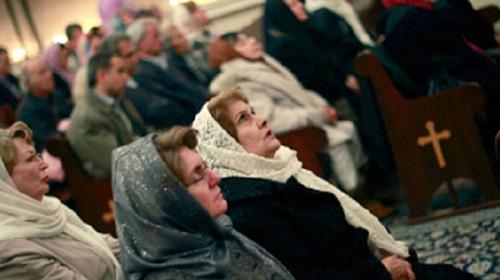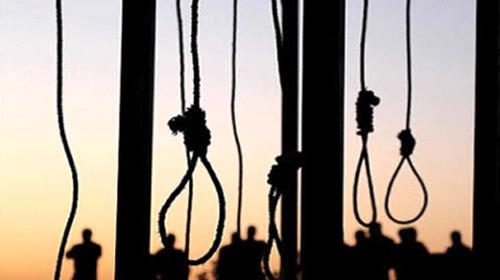Iranian judiciary insists pursuing former president
Mahmoud Ahmadinejad , who faces charges of corruption. Judicial spokesman Gholam-Hossein Mohseni-Ejei rejected Friday prayers' leader proposal for arbitration between the judiciary and Ahmadinejad, following days of exchanged accusations between the two sides through the media.
Last week, Ahmadinejad launched unprecedented criticism of Iran's judiciary, particularly the head of the judiciary, Sadeq Larijani.
Larijani, according to Ahmadinejad, is a “greedy, land-grabbing tyrant” and a totally “unjust” figure who should immediately resign as chief-justice, otherwise the whole ruling system would collapse.
The judiciary was among the institutions highly criticized by President
Hassan Rouhani who accused it of blocking his government's efforts in fighting corruption, however tensions between the two subsided after Rouhani’s second presidential term.
The dispute between the judiciary and Ahmadinejad peaked after the judiciary summoned a number of Ahmadinejad's aides and advisers over the past three months and charged them with various charges including corruption and propaganda against the regime.
Ahmadinejad's group denied the charges, accusing the judiciary of politicizing the issues, settling personal disagreement between Speaker Ali Larijani and head of the judiciary Sadeq Larijani on one side and Ahmadinejad on the other.
Earlier, Iran’s Guardian Council rejected Ahmadinejad's request and his assistant Hamid Baghaei for the presidential election.
On Sunday, Mohseni-Ejei said that the justice system is determined to face criminals, referring to Ahmadinejad's criticisms, Mohseni-Ejei said that 'the hype' will not prevent the legal course from being followed, justifying the delay in facing Ahmadinejad's behavior with 'wisdom' without giving further details.
'Some say we should refer these to medical jurisprudence to determine their mental capabilities. If we are to refer someone to medical jurisprudence, we will do it,' he added.
Mohseni-Ejei also commented on Friday prayers' leader proposal Mohammad Emami Kashani for the formation of an arbitration committee to discuss the issues raised by Ahmadinejad against the judiciary, saying that nothing like that has been discussed.
Regarding holding a public trial for Ahmadinejad, Mohseni-Ejei said that public and non-public trials have their own conditions and the court hadn’t been formed yet, describing it as a “secondary issue.”
Last month, Ahmadinejad sent an open letter to Iranian leader Ali Khamenei demanding that his judicial file be referred to the former president of Iran's judiciary, Mahmoud Hashemi Shahroudi.
Over the past two weeks, the former president posted two recordings on his website criticizing Iran's justice system.
Judges considered Ahmadinejad's behavior an attempt to evade legal accountability, but Ejei denied that Ahmadinejad's use of recordings could prevent prosecution on charges of spreading lies.
Meanwhile, 'Bahar News' website stated on Sunday that the Iranian security and judicial authorities summoned dozens of Ahmadinejad's supporters to the Prosecutor. The website noted that over the past few weeks, the Iranian judiciary has issued arrest orders to dozens of Ahmadinejad's supporters, adding that they are 'held in solitary confinement.'
The website claimed that a number of detainees were briefed on a list of 188 Ahmadinejad supporters in social networks. The authorities ordered the suspension of their mobile phone calls or their bank accounts, the website added.
On the other hand, Ejei quoted the Iranian Prosecutor Hossein Ali Montazeri that the judiciary is following the involvement of some government officials in the smuggling of goods, hoping the announcement of the results of the investigation will not be delayed.
On Wednesday, Montazeri revealed the involvement of some Iranian officials and members of their families in the smuggling of goods.
The amount of smuggled goods is estimated between $15 billion and $25 billion annually, Iranian media reported in January 2017. Officials say the illegal merchandise reached about $25 billion, however the Iran's Central Task Force to Combat Smuggling of Commodities and Currency says the rate has reached $12.5 billion during Rouhani’s residency.
In August, parliament speaker Ali Larijani said smuggling decreased from $25 billion to $12 billions. In addition, the speaker indicated last week that Iran’s economy faces 38 challenges, ruling out a growth’s possibility over the upcoming year.
Larijani reiterated that the budget is not enough to run the country, adding that the country’s income comes from oil revenues and taxes and barely reaches $70 billion.















